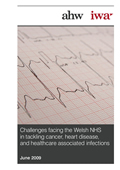Sian Gwenllian AM shares her hopes for the draft Curriculum for Wales, due to be launched tomorrow
Tomorrow the Welsh Government will publish the long-awaited Curriculum for Wales 2022 in draft form. This is being heralded as ‘an exciting milestone’ in education in Wales and over the summer term there will be an opportunity for scrutiny and feedback. For most of us, this will be the first time that we will be able to analyse the details. During the past four years the task of re-shaping the Welsh Curriculum has progressed mainly through the work of pioneer working groups but now all schools will be able to see the draft materials and start thinking about how the Curriculum can be used in their own school context.
Plaid Cymru has been broadly supportive of the principles behind this major reform but have also been aware of growing concerns about implementation that are being voiced by the teaching profession. Experts say the new curriculum will be too generalised and a lot will be left to individual teachers. Teachers tell me that while they welcome the ability to be more flexible, they also want more than a vague vision and a generalised approach. Most say they need detailed guidance whilst acknowledging the need for freedom for confident teachers to do things differently.
The Assembly’s Children, Young People and Education Committee on which I sit held a consultation on how the reforms are coming together. Reading the thirty-five responses was at best uncomfortable, at worst very concerning, and included some scathing comments.The responses highlighted a lack of progress with developing the new Curriculum and raised far-reaching concerns about its substance. Lack of adequate training and professional development around this huge change is also causing anxiety. The financial pressures facing schools only exacerbates the concerns. Such fundamental changes need to be funded adequately but this is an era of dwindling school budgets.Let’s hope that some of the concerns have been heeded and that the teaching profession will feel more comfortable as to how all this will pan out.
The Welsh experience
As far as the content is concerned, Plaid Cymru believes that the curriculum should reflect Welsh experiences and Welsh history as well as equipping our young people with modern life and workplace skills. The Education Minister seems committed to providing ‘healthy relationships’ education which Plaid has long-called for, and we will be eager to scrutinise the draft Curriculum from that perspective too.
Talk of ‘a Welsh dimension’ in the Government’s recent White Paper proposals suggests a tick-box exercise. I will be particularly interested to see how this will be embedded in the new Curriculum and to see how it will be ensured that each child in Wales will grow up knowing about our nation’s rich past. The recent spate of new ‘Cofiwch Dryweryn’ graffiti across the length and breadth of Wales shows that young people are hungry to learn about our history. It is scandalous that we know more about the wives of Henry VIII than we do about our own inheritance.
In 2013 a report entitled The Cwricwlwm Cymreig, history and story of Wales was published following the work of an expert group chaired by historian Dr Elin Jones. The group felt that the Welsh dimension should be integrated into every subject where that is meaningful or relevant. They recommended that it should be compulsory for every qualification in Wales to reflect a Welsh perspective where appropriate. Many of us will be eager to see how this will be reflected in the draft Curriculum and how it will work in practice.
The teaching of the Welsh language
The Government has announced that as part of the reforms, from 2022 all pupils will follow the same curriculum for the Welsh language. In principle that is excellent. Most of us would agree that teaching Welsh as a second language has been ineffective in giving young people who do not speak the language at home the skills to use Welsh in everyday life. As ever, however, the devil will be in the detail.
There is already a shortage of Welsh-speaking teachers – the government said it was working to boost skills but that could take many years. Currently, around one third of Welsh teachers speak Welsh, which is a good starting point. According to research commissioned by Plaid Cymru, this number will need to be at least doubled in order to realise the ambition of providing an education system that will produce a million Welsh speakers and current strategies for attracting more teachers for the Welsh medium sector are neither sufficient nor comprehensive.
It is logical that the Welsh second language GCSE will ultimately need to go, but it is not clear yet how a single qualification for pupils across all schools would work. Lack of clarity around this is creating unnecessary worry among pupils, parents and teachers.
In general, the Donaldson proposals have provided us with a great opportunity to modernise the Welsh curriculum and to raise standards. The next phase is crucial and I look forward to listening to the feedback and to engage constructively in this important debate.
All articles published on Click on Wales are subject to IWA’s disclaimer.






Comments are closed.